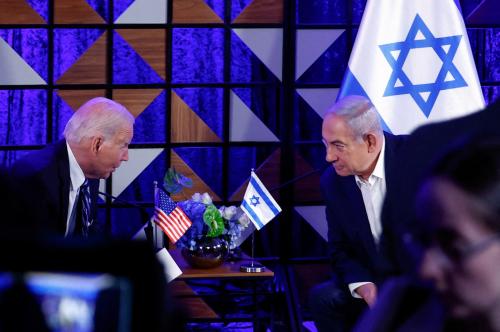Editor’s Note: On February 27, 2013, Benjamin Wittes testified before the House Committee on the Judiciary on the topic of drones and the war or terror.
Thank you, Mr. Chairman and members of the committee, for inviting me to testify on the question of when the United States may lawfully target alleged American terrorists overseas. I am a Senior Fellow in Governance Studies at the Brookings Institution. I co-founded and am Editor in Chief of the Lawfare Blog, a website devoted to balanced and sober discussion of “Hard National Security Choices.” I also serve on the Hoover Institution’s Task Force on National Security and Law. I am the author or editor of several books on subjects related to law and national security: Detention and Denial: The Case for Candor After Guantánamo (2011), Law and the Long War: The Future of Justice in the Age of Terror (2008), and Legislating the War on Terror: An Agenda for Reform (2009). I have written extensively about the legal underpinnings of U.S. targeted killing operations. Currently, I am co-authoring a book with Professor Kenneth Anderson of American University’s Washington College of Law, entitled Speaking the Law: The Obama Administration’s Addresses on National Security Law, from which this testimony is partially adapted. The views I am expressing here also reflect those of Professor Anderson—but not those of any other person or entity.
In this testimony I want to explain the essential legal rationale underlying the administration’s position with respect to the lethal targeting of an American citizen abroad who is believed to be a senior operational leader of Al Qaeda or associated forces. I also intend to address some of the misreadings of the administration’s view, which have cast it in a far more menacing light than its rather restrained reality justifies. In fact, as I will explain, there is nothing extraordinary about the administration’s position, which actually claims very little in the way of power to target Americans. The exact contours of the administration’s thinking remain somewhat clouded by its refusal to release the legal memoranda that underlie both its public statements and the leaked “White Paper” that has recently garnered so much attention. What’s more, the precise legal theory may vary somewhat depending on whether military or covert forces do the targeting.
That said, enough is public to draw the following conclusion: No significant aspect of the administration’s position on this subject ought to give rise to concern that it is claiming undue power.
p>



Commentary
TestimonyDrones and the War on Terror: When Can the U.S. Target Alleged American Terrorists Overseas?
February 27, 2013